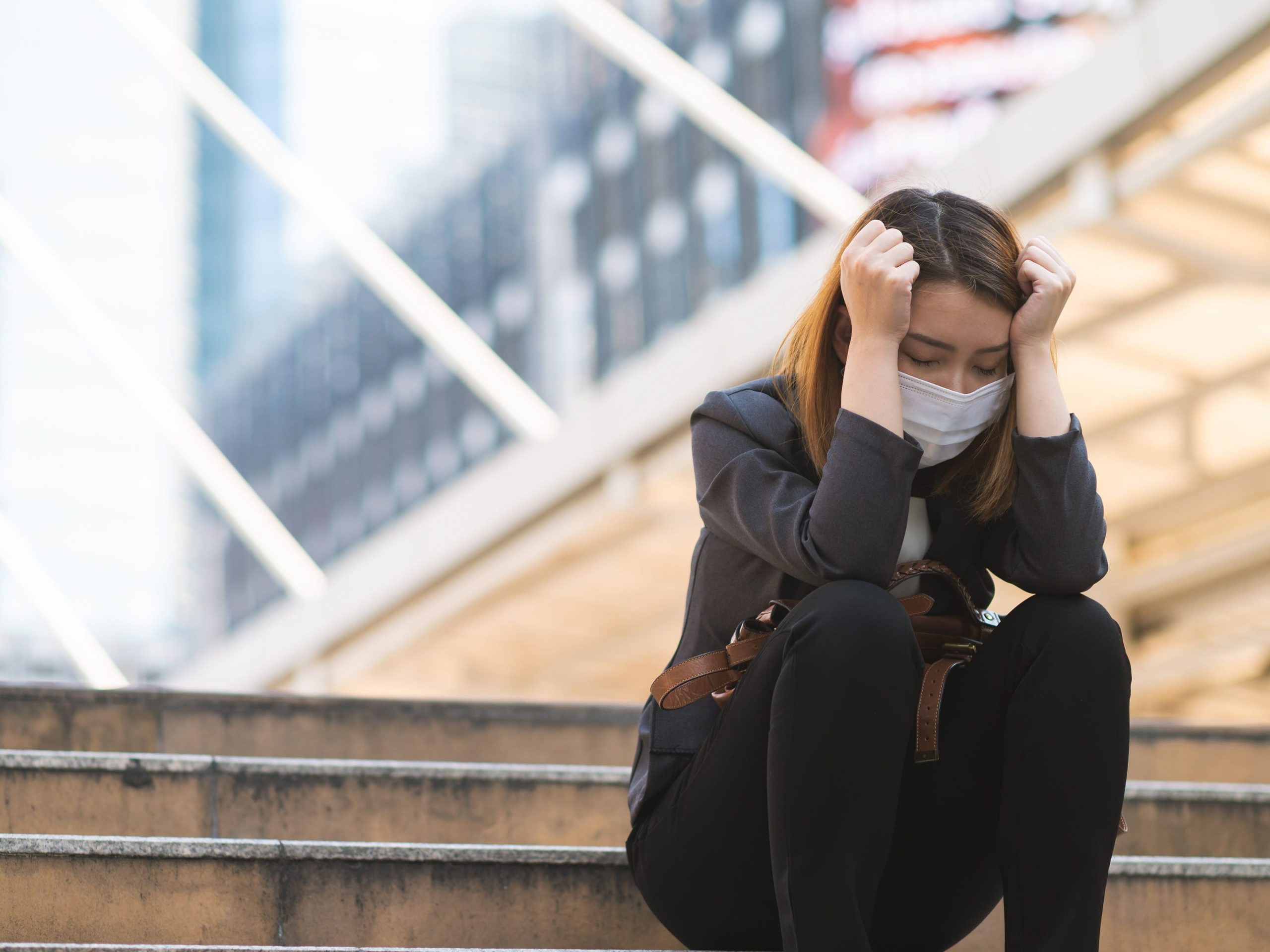
Kiyoshi Hijiki/Getty Images
- Some COVID-19 patients have experienced hallucinations and delusions weeks after the onset of their illness.
- Cases of psychosis associated with COVID-19 are rare, but many patients will experience some neurological symptoms.
- Neurological symptoms may occur due to the widespread inflammation associated with the syndrome, or possibly because of an immune system reaction.
- Visit Insider’s homepage for more stories.
A rare subset of COVID-19 patients around the globe have developed psychotic symptoms ranging from disturbing delusions to vivid hallucinations weeks after the onset of their illness.
In one instance reported by the New York Times, a New York woman with no history of mental illness started hearing a voice that first told her to kill herself, then to murder her children. She had fallen mildly ill with COVID-19 months earlier, and after observing a string of similar cases, her doctor thought the psychosis might be a rare side effect of the virus.
At least 42 cases of psychosis associated with COVID-19 have been reported to date, according to a preprint of a paper in the January 2021 issue of Neuroscience Letters.
Experts have hypothesized that these cases, as well as other neurological symptoms observed in COVID-19 patients, may be linked to the widespread inflammation in the body associated with the syndrome or to the byproducts of the body’s immune response to the virus.
“The massive inflammation that COVID-19 exerts on an individual oftentimes results in quite a bit of organ dysfunction from head to toe,” Panagis Galiatsatos, a pulmonary and critical care physician at Johns Hopkins Bayview Medical Center, told Insider. “The brain’s symptoms of this tend to be rooted in delirium.”
Galiatsatos said "delirium" is a medical catch-all for neurological symptoms ranging from severe psychosis to milder cognitive impairments. He added that these symptoms can occur long after the physical symptoms are gone - even after the inflammation has subsided, the brain is still recovering from injury.
Links between psychosis and COVID-19
Fortunately, severe psychosis due to COVID-19 seems to be uncommon. A quick search of British Medical Journal case reports yields seven cases of psychosis associated with COVID-19 since June.
One study identified 10 patients hospitalized with COVID-19 with "new-onset psychosis" in the UK - among 153 individuals with neurological or psychiatric complications - and another found 10 such patients at one hospital in Spain.
Doctors in the US have also described instances of coronavirus-associated psychosis. Along with the mother who heard a murderous voice, the New York Times' Pam Belluck wrote about the cases of a North Carolina woman who tried to pass her children through a drive-through window to save them from an imagined kidnapping and a New York City construction worker who tried to strangle his cousin after experiencing delusions that his cousin planned to murder him.
A paper published by the NIH's National Library of Medicine in September detailed another instance of a middle-aged man who became so paranoid he attempted suicide after contracting the virus. Like the other patients, he had no history of mental illness.
It's not yet clear how COVID-19 causes neurological symptoms
Other documented brain-related symptoms of COVID-19 include strokes, trouble concentrating or "brain fog," and loss of taste and smell.
A review of research published in the Annals of Neurology in October found more than 80% of hospitalized coronavirus patients experienced some neurological symptoms. COVID-19 poses a "global threat to the entire nervous system," the authors wrote.
It's still unclear whether these symptoms occur due to inflammation, as Galiatsatos suggested, or if the virus directly infects the brain. Although scientists have observed the virus in the brain - usually in small infections clustered around blood vessels, according to a Nature article - it's a rare occurrence. The more likely explanation is an immune-mediated response, the article concluded.

